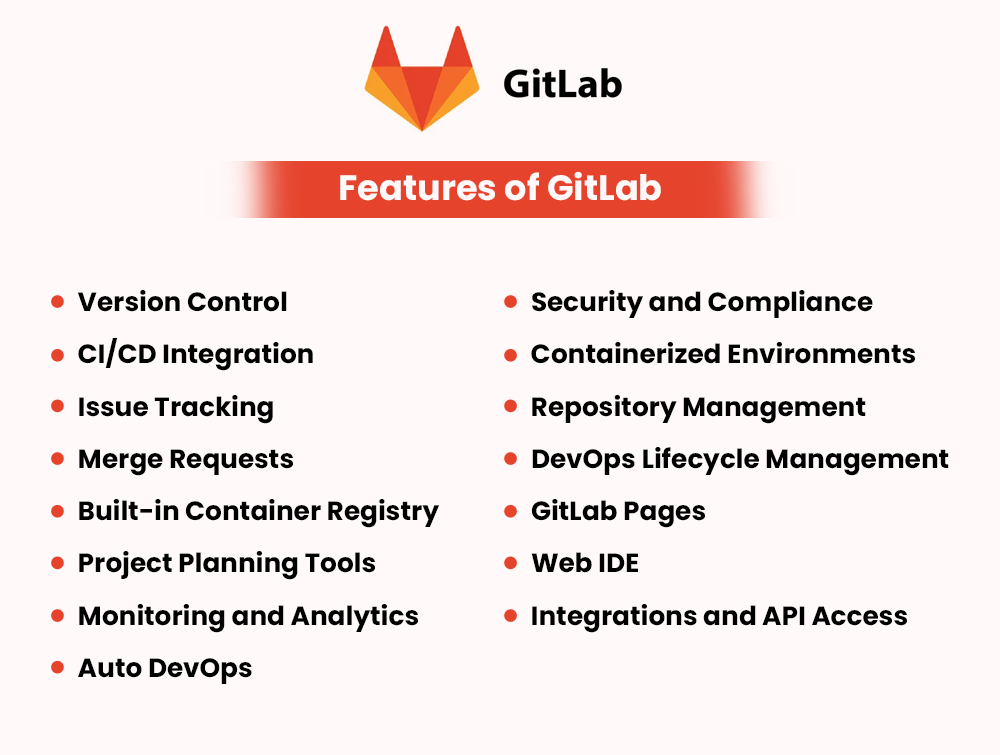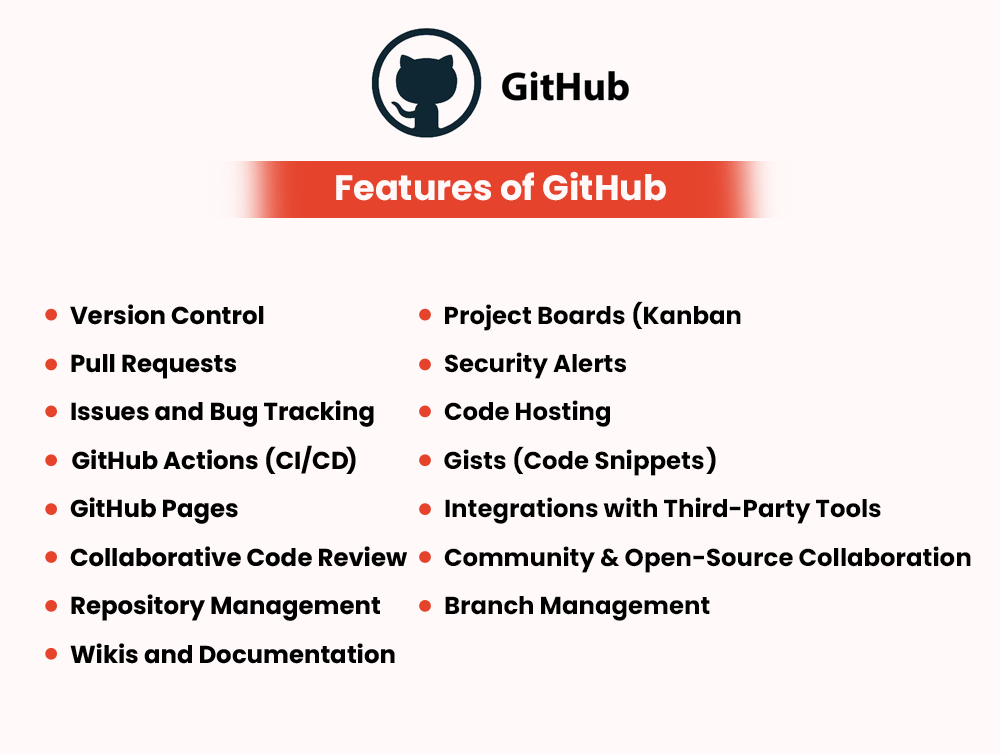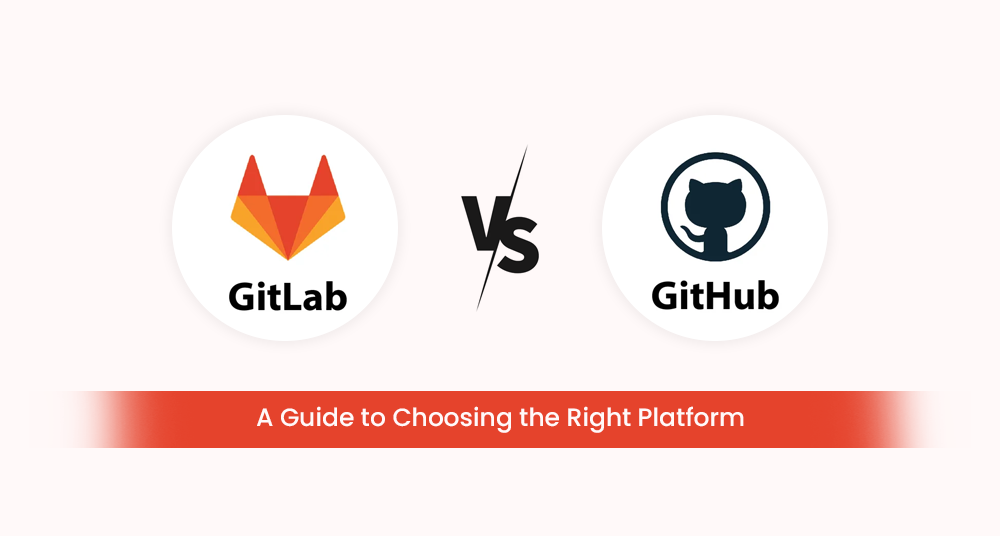When selecting a DevOps platform, understanding the core differences between GitLab and GitHub is essential to aligning with your workflow needs. Both are powerful tools designed for version control and collaborative development, but each comes with unique features, use cases, and benefits.
GitLab excels as a complete DevOps platform with integrated CI/CD pipelines, making it ideal for end-to-end development workflows. On the other hand, GitHub shines as a collaborative hub for open-source projects, offering simplicity and a vast developer community.
At Synarion IT Solutions, we understand the significance of choosing the right platform to optimize your development process. Our comprehensive guide explores the key aspects of GitLab and GitHub, helping you make the right decision for your project needs.
What is GitLab?
GitLab is an open-source platform that combines a code repository with collaborative software development tools, designed for managing DevOps and DevSecOps projects. It offers features like source code management, CI/CD pipelines, issue tracking, and security integrations, enabling teams to automate workflows and enhance productivity. Trusted by enterprises, it supports the full software development lifecycle, ensuring seamless collaboration, faster delivery, and robust security in application development and deployment.
Features of GitLab

- Version Control
- CI/CD Integration
- Issue Tracking
- Merge Requests
- Built-in Container Registry
- Project Planning Tools
- Monitoring and Analytics
- Auto DevOps
- Security and Compliance
- Containerized Environments
- Repository Management
- DevOps Lifecycle Management
- GitLab Pages
- Web IDE
- Integrations and API Access
What is GitHub?
GitHub is a web-based platform that enables developers to store, share, and collaborate on code efficiently. It provides version control using Git, allowing teams to track changes, review contributions, and work seamlessly on projects. With GitHub, developers can revert to previous versions, manage branches, and streamline workflows, making it a powerful tool for open-source projects and collaborative development across diverse teams.
Features of GitHub

- Version Control
- Pull Requests
- Issues and Bug Tracking
- GitHub Actions (CI/CD)
- GitHub Pages
- Collaborative Code Review
- Repository Management
- Wikis and Documentation
- Project Boards (Kanban)
- Security Alerts
- Code Hosting
- Gists (Code Snippets)
- Integrations with Third-Party Tools
- Community and Open-Source Collaboration
- Branch Management
Key Differences Between GitLab and GitHub
GitLab and GitHub are two of the most popular version control platforms, widely used for software development and collaboration. While they share similarities, their differences set them apart based on use cases and preferences.
#1. Hosting Options
GitHub primarily offers cloud-based hosting, although an enterprise self-hosted option is available. GitLab stands out by providing robust self-hosted and cloud-hosted options, appealing to teams seeking full control over their infrastructure.
#2. Integrated CI/CD
GitLab comes with a built-in Continuous Integration/Continuous Deployment (CI/CD) pipeline. This feature allows developers to automate testing, building, and deploying directly from the platform. In contrast, GitHub requires third-party integrations like GitHub Actions or other external tools to set up CI/CD pipelines.
#3. Permissions and Access Control
GitLab provides more granular permissions management, giving teams greater control over project access. GitHub, while improving in this area, offers fewer options in comparison, especially in its free tier.
#4. Pricing Models
GitHub focuses on repository privacy with free unlimited private repositories for individual users. GitLab’s free tier includes additional features such as CI/CD, making it more appealing for smaller teams with advanced needs.
#5. Issue Tracking and DevOps
GitLab integrates tightly with DevOps workflows, offering advanced issue tracking, Kanban boards, and monitoring tools in one platform. GitHub, while excellent for code hosting, requires external integrations for a complete DevOps solution.
#6. Community and Ecosystem
GitHub’s vast community and integration with GitHub Marketplace make it ideal for open-source projects. GitLab, although popular, has a smaller open-source footprint but excels in enterprise use cases.
Useful Blog: A Guide to DevOps Roadmap Development in 2025
GitLab vs GitHub: Which One Suits Your Project Requirements?
GitLab and GitHub both offer distinct features suited to different project needs. GitLab excels with integrated CI/CD and DevOps tools, while GitHub is ideal for collaborative code sharing.
Choose based on team size and workflow requirements.
Collaboration
GitHub excels in collaboration, making it ideal for open-source projects and smaller teams. GitLab offers similar collaboration features but is more integrated with DevOps tools.
CI/CD Integration
GitLab provides built-in continuous integration/continuous deployment (CI/CD) features, offering a more complete DevOps experience. GitHub requires third-party integrations for CI/CD.
User Interface
GitHub is known for its simple and user-friendly interface, making it easier for beginners. GitLab has a slightly more complex interface due to its broader range of features.
Private Repositories
Both platforms offer private repositories, but GitLab provides them for free with unlimited collaborators, while GitHub limits the number of collaborators for free plans.
DevOps and Automation
GitLab shines with its built-in tools for DevOps, including automated testing, deployment, and monitoring. GitHub’s DevOps features require external tools and integrations.
Community and Ecosystem
GitHub has a larger community and ecosystem, making it the go-to platform for open-source projects. GitLab’s community is smaller but offers a more complete solution for enterprises.

Summary
Whenever you’re comparing GitLab vs GitHub, it’s essential to understand that both platforms offer robust DevOps implementation solutions, each excelling in specific areas. GitHub is the leader in open-source projects, largely due to its extensive open-source community. On the other hand, GitLab’s integrated toolchain is ideal for private development activities. When pitting GitHub against GitLab, it’s crucial to compare them in terms of security, compliance, and on-premises support—GitLab generally outperforms in these areas. While there’s no definitive “perfect” choice between GitLab vs GitHub, to find the optimal solution, you should first analyze your workflow and team culture. Many enterprises even opt to utilize both platforms simultaneously.
Complete migration demands accurate workflow mapping. When evaluating GitLab vs GitHub, there’s no universal solution. Each platform should be assessed on its own to identify the features that best suit your project needs. Both GitLab and GitHub have advanced considerably to meet the evolving demands of the software development industry. GitHub’s recent updates improve automation, security, and code review features, while GitLab prioritizes streamlining DevOps integrations and CI/CD pipelines.
It’s recommended to consult with a leading software development company like Synarion IT Solutions, which can provide expert guidance throughout the entire software development lifecycle. Synarion IT Solutions offers valuable insights on integration capabilities, user interface, security measures, future-proofing, pricing, and other performance aspects, helping businesses make well-informed decisions about the most suitable platform for their needs.






What do you think?
It is nice to know your opinion. Leave a comment.